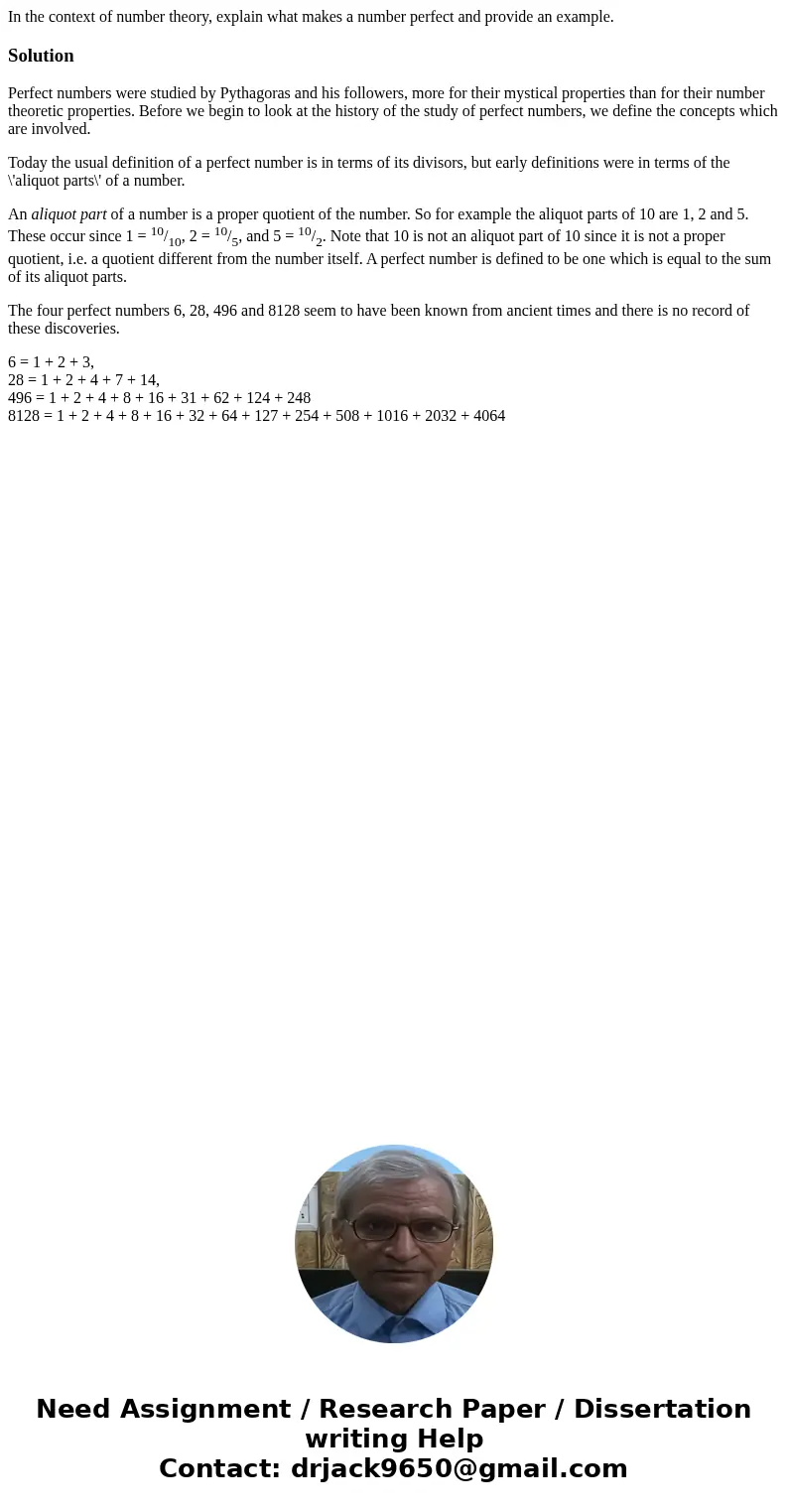In the context of number theory explain what makes a number
In the context of number theory, explain what makes a number perfect and provide an example.
Solution
Perfect numbers were studied by Pythagoras and his followers, more for their mystical properties than for their number theoretic properties. Before we begin to look at the history of the study of perfect numbers, we define the concepts which are involved.
Today the usual definition of a perfect number is in terms of its divisors, but early definitions were in terms of the \'aliquot parts\' of a number.
An aliquot part of a number is a proper quotient of the number. So for example the aliquot parts of 10 are 1, 2 and 5. These occur since 1 = 10/10, 2 = 10/5, and 5 = 10/2. Note that 10 is not an aliquot part of 10 since it is not a proper quotient, i.e. a quotient different from the number itself. A perfect number is defined to be one which is equal to the sum of its aliquot parts.
The four perfect numbers 6, 28, 496 and 8128 seem to have been known from ancient times and there is no record of these discoveries.
6 = 1 + 2 + 3,
28 = 1 + 2 + 4 + 7 + 14,
496 = 1 + 2 + 4 + 8 + 16 + 31 + 62 + 124 + 248
8128 = 1 + 2 + 4 + 8 + 16 + 32 + 64 + 127 + 254 + 508 + 1016 + 2032 + 4064

 Homework Sourse
Homework Sourse